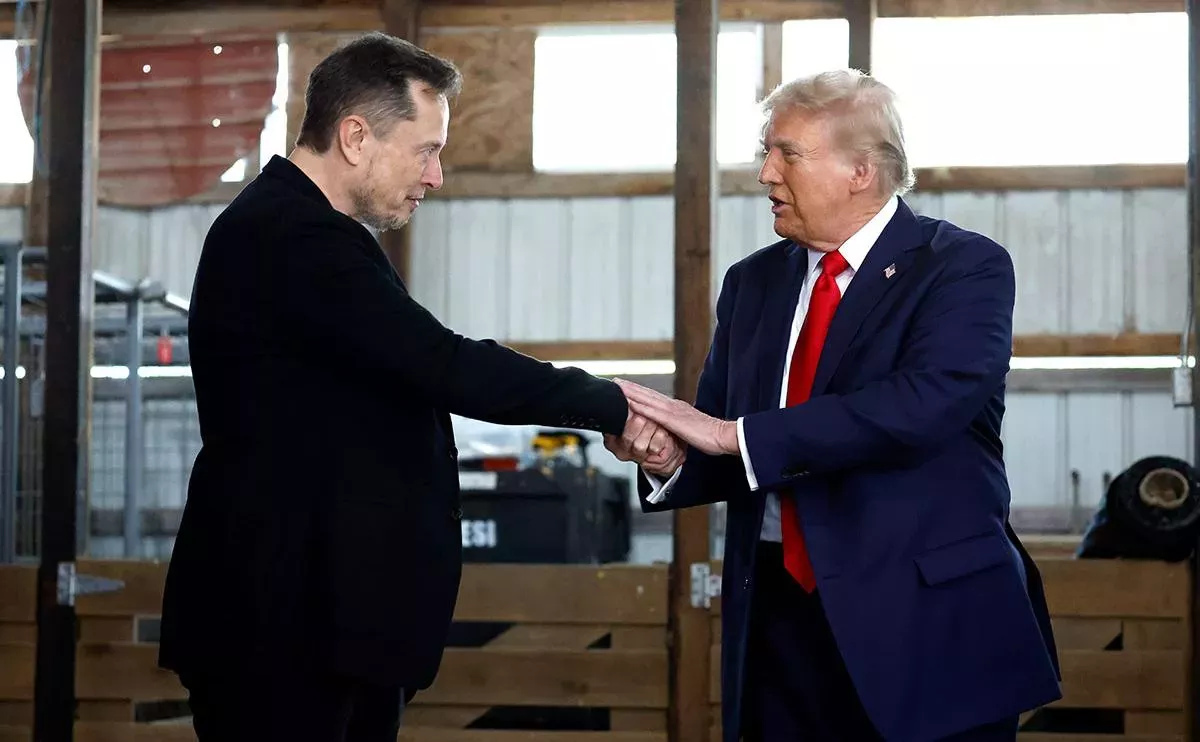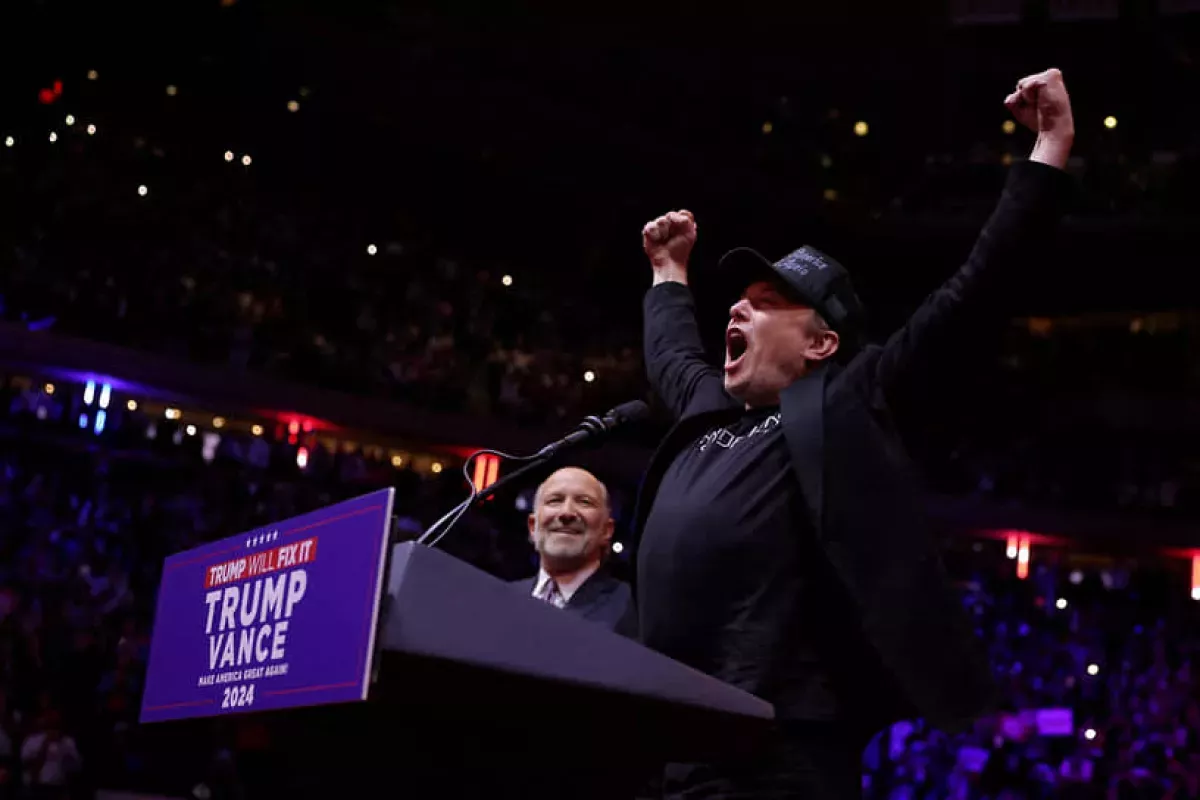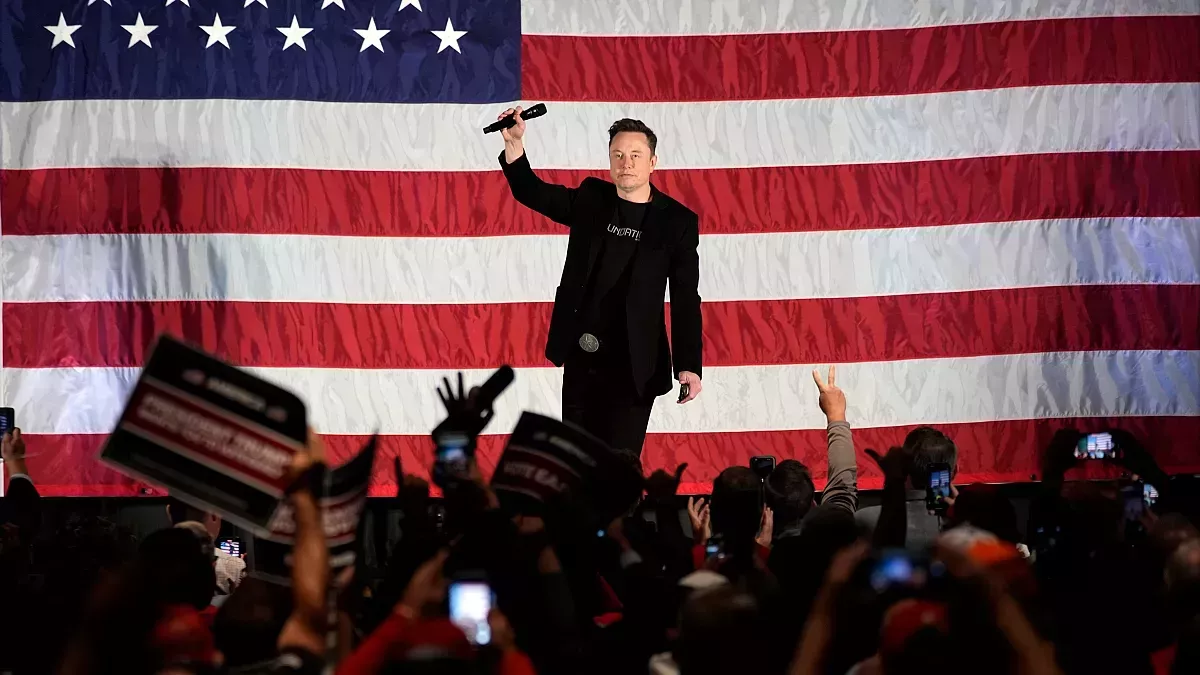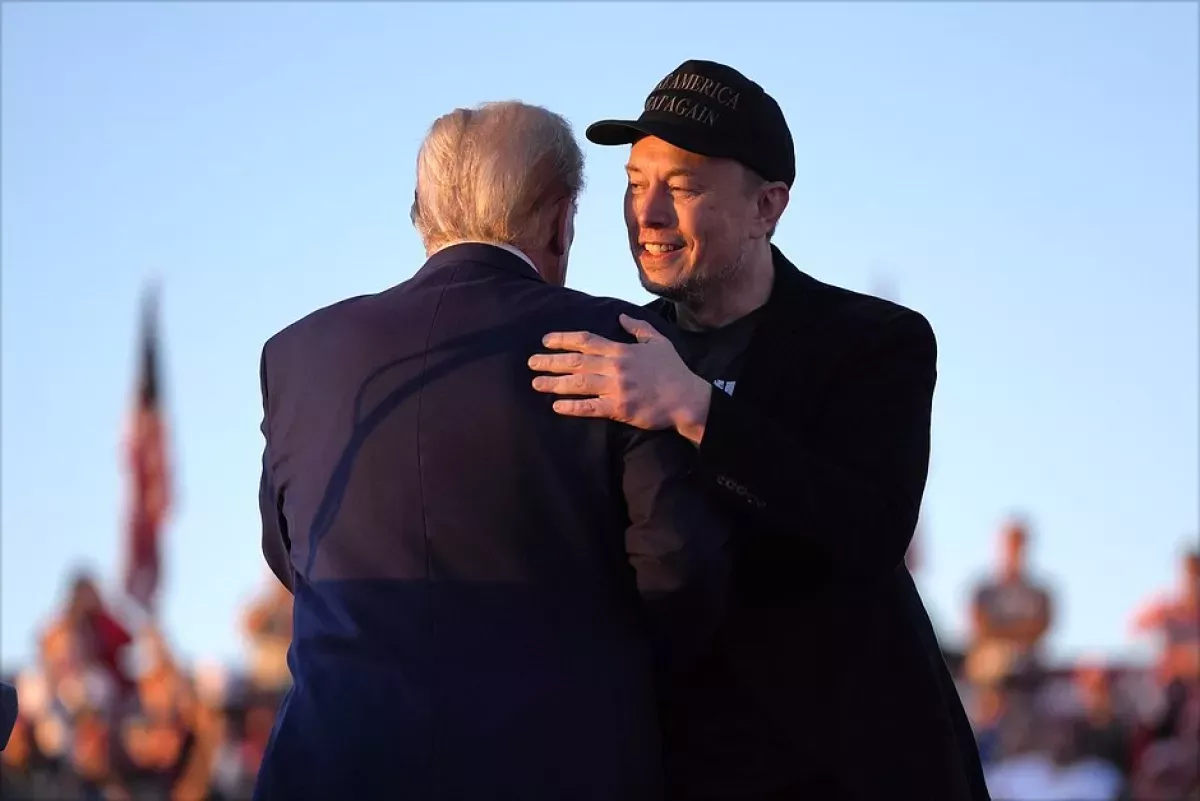Elon Musk: Future "grey cardinal" of the White House? A Look at the shifting dynamics
Elon Musk, one of the wealthiest individuals in the world, with a net worth of $300 billion, is the founder, CEO, and chief engineer of SpaceX; the investor, CEO, and product architect of Tesla; and the owner of Twitter (X). He has become the most influential private figure in the circle of the recently elected US president. Musk played a pivotal role in supporting Donald Trump’s election campaign, both financially and in terms of media influence, and has secured a place among Trump’s closest confidants.
Now, Musk is involved in nearly every high-level conversation Trump has with foreign leaders. During a call with Ukrainian President Volodymyr Zelenskyy, The New York Times reports, Trump handed the phone to Musk. He was also present during Trump's talks with Turkish President Recep Tayyip Erdoğan. Now, Musk is engaging with Iranian officials to explore ways of brokering peace between Iran and the United States.

All of this is causing irritation within the circle of the newly elected US president. Firstly, many are opposed to the ideas and interests that Elon Musk promotes. Secondly, some influential officials are frustrated by the growing influence Musk has over Trump, as well as his increasing impact on US domestic and foreign policy.
Elon Musk and the talks with Iran
The scandal didn't erupt when Elon Musk, the newly appointed advisor to President-elect Donald Trump, met with Iran's Ambassador to the United Nations, Amir Saeed Iravani. The uproar came a few days later. However, the meeting itself certainly raised concerns among many. The conversation lasted over an hour, and two Iranian officials who spoke with Musk described it as "positive" and "good news."
The meeting with Musk has increased the likelihood of changes in the relationship between Tehran and Washington, according to The New York Times. Musk, an American billionaire, is known not only for his investments in new technologies but also for his strong concerns about the threat of nuclear war and his push for peace. It's highly likely that the discussion centred on the possibility of a new nuclear deal, similar to the one signed by President Barack Obama with Iran in 2015: Iran's agreement to halt its nuclear weapons program in exchange for the lifting of economic sanctions.
The Iranian response appears to be favourable. Iran's Foreign Minister, Abbas Araghchi, posted on X (formerly Twitter, owned by Musk), stating: " Differences can be resolved through cooperation and dialogue. We agreed to proceed with courage and good will. Iran has never left the negotiation table on its peaceful nuclear program." Iranian President Masoud Pezeshkian also expressed support for dialogue.
This view is shared by analysts as well. “Overall, everything is possible with Trump,” said Ali Vaez, the Iran director for the International Crisis Group. “He appears to be interested in a deal with Iran.”

During his first term, Trump withdrew the United States from the 2015 nuclear deal, calling it "a horrible one-sided deal that should never, ever have been made," and imposed the heaviest economic sanctions on Tehran in history. Additionally, in 2020, the US president ordered the killing of Iranian General Qassem Soleimani, commander of the elite Quds Force. In response, Iran’s Supreme Leader Ali Khamenei banned any negotiations with Washington, and Iranian officials vowed to avenge Soleimani’s death. But now, following talks with Musk, the Iranian leadership has begun openly discussing whether they can secure a new, potentially more favourable and long-term deal with the United States.
The problem, however, is that Musk’s approach contradicts the interests of various Trump supporters within the Republican Party. This is especially true for Senator Marco Rubio of Florida, whom Trump had recommended for Secretary of State. A longtime staunch opponent of Iran, Rubio was a strong advocate for the US withdrawal from the nuclear deal and supported Trump’s imposition of sanctions on Tehran.
Other figures in Trump’s circle share similar views.
Elon Musk and China
The crisis triggered by Musk’s growing influence on the US president may not only arise due to Iran. Far more significant could be the disagreements between Musk and other factions within Trump’s circle over policies regarding China.
In the official US national security strategy, China is considered the primary threat. The competition between America and the newly ascendant superpower is inevitable. China’s massive and rapidly growing economy, its swift modernization, and its increasing military power are sources of concern for Washington, turning China into a rival.
This is further complicated by the Taiwan issue. Taiwan is effectively led by an independent government, which is a military-political ally of the US, even though the US does not have formal diplomatic relations with Taiwan. In Beijing, the Taiwanese are unequivocally viewed as separatists, and the Chinese government maintains that the island’s reunification with mainland China is, sooner or later, inevitable.
Until now, Trump’s policy has been firmly rooted in a tough anti-China stance, a position that has also been maintained by the Biden administration. The key difference is that Trump’s approach is far more radical. His central idea is to impose a 60% tariff on Chinese goods entering the US. This, without a doubt, would deliver a severe blow to Chinese exports to the US, which total $600 billion, and to China’s entire economy. Furthermore, Trump aims to use such protectionist measures to stimulate the growth of American industry.
There is no doubt that a trade war would provoke a response from Beijing, including a potential devaluation of the Chinese yuan to make exports more competitive, as well as powerful state-backed incentives for domestic industries. This, in turn, would escalate tensions between the two countries, particularly with regard to the Taiwan issue.
But Elon Musk is a different case. About 50% of Tesla’s cars are produced in Shanghai, where the company’s “gigafactory” is located. During a meeting with Chinese Premier Li Qiang, Musk referred to his factory in China as the “best facility” of the company. He also emphasized that Tesla intends to continue strengthening its collaboration with China to achieve mutually beneficial results.
In China, due to the nature of its political and economic system, there is no clear distinction between state and private property. Therefore, any economic decision, and by extension, Musk’s wealth, is closely tied to the favour of the Chinese Communist Party’s Central Committee. As a result, the success and even the existence of one of Musk’s key factories are directly dependent on the attitudes of top Chinese officials toward him.

This dynamic inevitably influences Musk’s actions. For example, Chinese leadership expressed displeasure over his provision of internet services to Ukrainian military forces, and, according to Musk, they demanded assurances that he would not use such technologies against China. Musk has also commented on the Taiwan issue, stating that Taiwan is an integral part of China and that he supports the integration of Taiwan with China. “Their [Beijing’s] policy has been to reunite Taiwan with China. From their standpoint, maybe it is analogous to Hawaii or something like that, like an integral part of China that is arbitrarily not part of China mostly because…the US Pacific Fleet has stopped any sort of reunification effort by force,” Musk said.
“There is a risk of one of the two capsizing the other. Trump and Musk may clash when it comes to tightening economic restrictions aimed at China,” said Neil Thomas, an expert at the Asia Society Policy Institute in New York. However, this is no longer just a matter of political choices for the new administration.
Trump’s circle is unhappy with Musk's influence
This influence has become enormous, extending to both foreign and domestic policy issues. Last Tuesday, Donald Trump announced that the CEO of Tesla and SpaceX, along with Vivek Ramaswamy, would lead the new Department of Government Efficiency. This decision also points to the closeness Musk has managed to establish with Trump after the elections. However, as NBC News reports, for some people in Trump’s orbit, Musk’s presence has become excessive.

“Musk has been so aggressive in pushing his views about Trump’s second term that he’s stepping on the toes of Trump’s transition team,” and in fact, he may have been “overstaying his welcome at Mar-a-Lago,” sources close to the president told NBC News in an interview.
According to sources, Musk's almost constant presence at Mar-a-Lago in the week following the election day began to irritate those who had been in Trump’s circle longer than he had, and who felt that the billionaire was overstepping his bounds. “He’s behaving as if he’s a co-president and making sure everyone knows it… And he’s sure taking lots of credit for the president’s victory. Bragging about America PAC and X to anyone who will listen. He’s trying to make President Trump feel indebted to him. And the president is indebted to no one.”
In a statement, Trump-Vance transition spokesperson Karoline Leavitt said: “Elon Musk and President Trump are great friends and brilliant leaders working together to Make America Great Again. Elon Musk is a once in a generation business leader and our federal bureaucracy will certainly benefit from his ideas and efficiency.”
According to influential sources who spoke with NBC News, Musk is present at Mar-a-Lago at all hours, sitting with Trump and participating in calls and meetings. The billionaire has an "opinion on and about everything," and his tendency to consistently share it has started to irritate Trump’s inner circle: "He wants to be seen as having say in everything (even if he doesn’t)."
This signals a growing power struggle within Trump’s circle. It remains uncertain how it will unfold.








